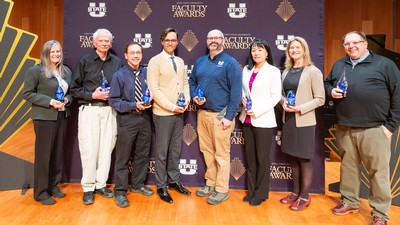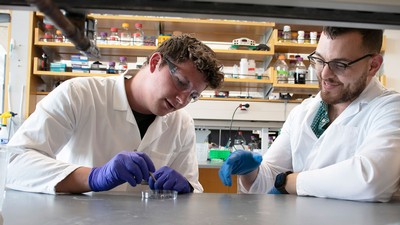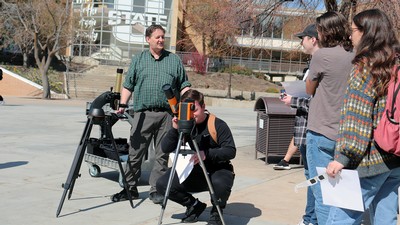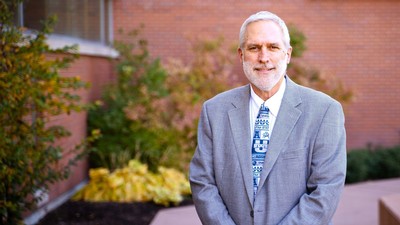Defining Engineering: USU Researcher Tackles a Profession's Identity Crisis
Idalis Villanueva published new findings in the "International Journal of Engineering Education" on how to improve engineering education in the United States.
Engineering education in the United States is not keeping up with the rapidly-evolving paradigm of today’s engineering profession, giving some students an incomplete perspective about what their future careers will actually be.
That’s according to a new study by a pair of engineering education experts working to understand the complex factors that affect student success and retention rates in science, technology, engineering and math (STEM) programs. The findings were published in the latest volume of the International Journal of Engineering Education.
“We’re educating today’s students for the engineering careers of the past,” said Idalis Villanueva, lead author and assistant professor of engineering education at Utah State University. “Engineering curriculum has remained practically untouched since its introduction in the United States in the early 1800s.”
Villanueva and co-author Louis Nadelson of Colorado Mesa University say 21st century engineers are focused more on design and human-centered problem solving and less on the development of scientific and technical knowledge. But many universities across the United States, they say, some engineering curricula may leave students to think engineers are trained to become mediators of math and science knowledge.
“Some of our engineering students think engineers study math and science for the sole purpose of furthering those disciplines,” she added. “While there is some truth to that, the reality is that engineers must be scientifically and technically knowledgeable but also understand the human and social side of a problem. We’ve somehow lost that important aspect in teaching engineering at our universities.”
As part of the study, she and Nadelson surveyed 275 undergraduate engineering students about their perception of engineers and the engineering profession. They asked students to define the terms engineer and engineering and asked which essential skills are needed by professional engineers.
Their analysis showed that close to 92 percent of participants defined engineers as mediators of scientific and technical knowledge, a concept that stems from American engineering education in the 1800s. Another two percent defined engineers as innovative problems solvers equipped with both technical knowledge and a human-centered perspective.
The researchers suggest engineering students need additional help in developing a professional identity that more accurately aligns with that of today’s practicing engineers. Ignoring the problem, they caution, opens the door to professional confusion among would-be engineers.
“We think our students’ engineering education should focus on helping them understand the work, norms and expectations of professional engineers and the role that a 21st century engineering professional plays in today’s society,” said Villanueva. “It’s critical for their development as an engineering professional.”
Researcher Contact: Dr. Idalis Villanueva, Assistant Professor, Engineering Education, Utah State University | office: 435-797-0773 | idalis.villanueva@usu.edu
News Media Assistance: Matt Jensen, College of Engineering, Utah State University | office: 435-797-8170, mobile: 801-362-0830, matthew.jensen@usu.edu | engineering.usu.edu | @ EngineeringUSU
Comments and questions regarding this article may be directed to the contact person listed on this page.






